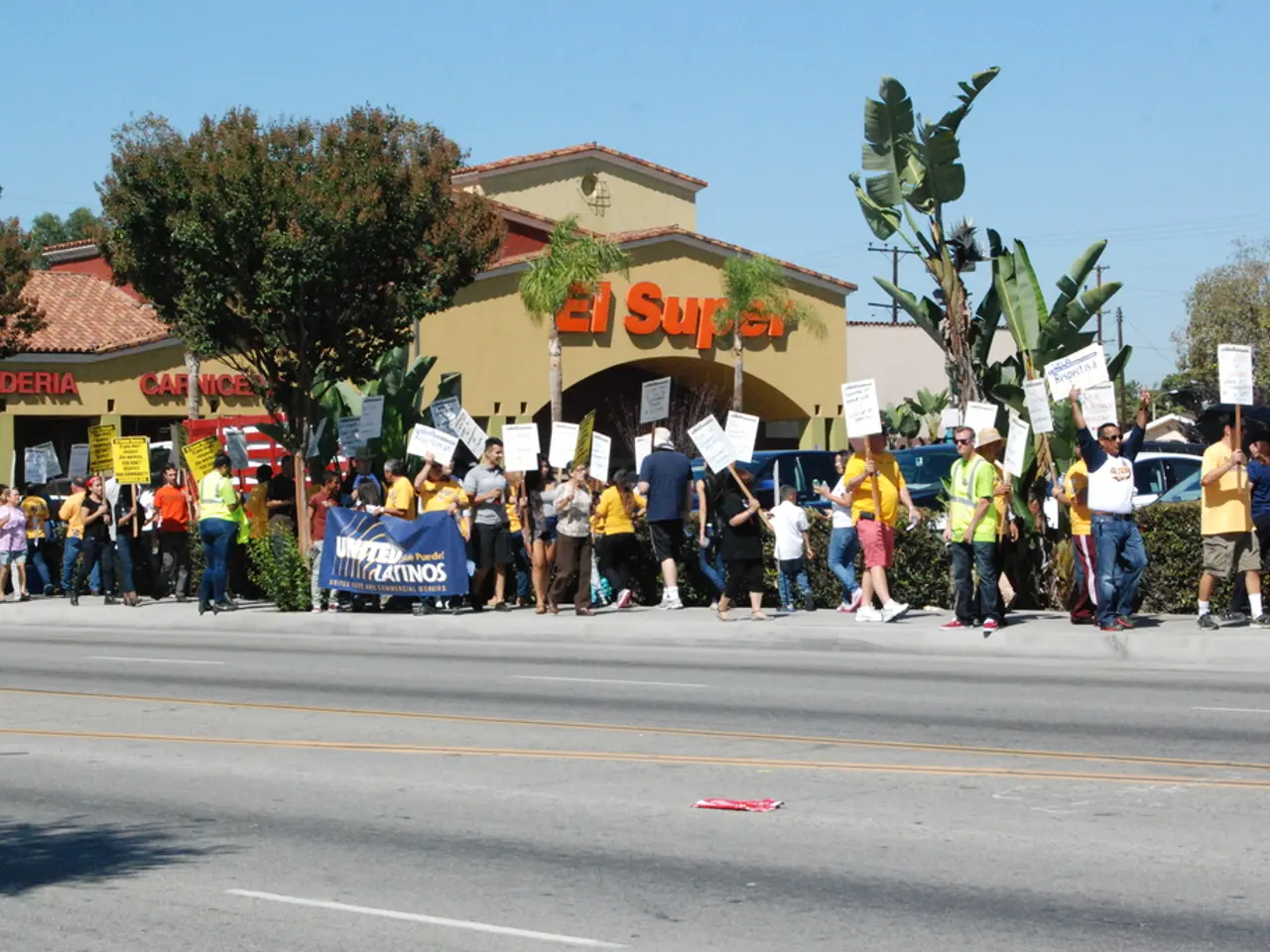Far-right German party AfD leads in voter poll amid Chancellor Merz's discontent with citizens
In recent weeks, the Social Democratic Party (SPD) has made a significant move with plans for numerous tax hikes, a development that has stirred up the German political landscape.
The German economy, however, has shown little sign of revitalization. The GDP growth has flatlined, and unemployment has surpassed three million. This economic stagnation, coupled with increasing dissatisfaction, has not been addressed with specific reform plans by the current government led by Chancellor Friedrich Merz and his Conservative Christian Democratic Union (CDU).
The CDU, which won the 2025 federal election, has seen a rapid decline in voter support in the seven months since. The party, now in second place, has only managed to secure 26% of the vote, a 1 percentage point loss compared to the previous poll. This decline is particularly significant when compared to the AfD, which is currently leading in polls with 27% of the vote.
The AfD's 27% share in the latest poll surpasses the CDU's 28.5% share from the February 2025 general election, marking a significant shift in the political landscape. This is also the highest the AfD has ever achieved in a German poll for a hypothetical general election.
The SPD, led by Chancellor candidate Olaf Scholz, has suffered the largest loss in voter share since the 2025 federal election. The party's vote share has fallen to 16.4%, its worst result since 1887. This represents a significant decline compared to previous elections.
The SPD, Merz's coalition partner, has been making headlines with these tax hike plans. Meanwhile, the Greens and the hard-left Die Linke party have also seen a slight decrease in voter support, with the Greens receiving 11% of the vote and Die Linke receiving 9% of the vote.
In the Bundestag debate on the federal budget, AfD leader Alice Weidel accused Merz of breaking election promises, specifically on returning to nuclear power and reducing electricity taxes. However, the CDU has not broken their self-imposed ban on cooperating with the AfD.
Merz, who promised bold reforms for the autumn, has yet to mention any specific plans. The price of electricity in Germany has been brought down as a promise made by the Chancellor's party, but the lack of revitalization in the economy and the increasing dissatisfaction with Merz's government have not been addressed.
As of early September, 75% of Germans are dissatisfied with Merz's government, a statistic that underscores the challenges facing the CDU in the coming months. The political landscape in Germany is indeed changing, and the outcomes of the forthcoming reforms and elections remain uncertain.
Read also:
- United States tariffs pose a threat to India, necessitating the recruitment of adept negotiators or strategists, similar to those who had influenced Trump's decisions.
- Weekly happenings in the German Federal Parliament (Bundestag)
- Southwest region's most popular posts, accompanied by an inquiry:
- Discussion between Putin and Trump in Alaska could potentially overshadow Ukraine's concerns








